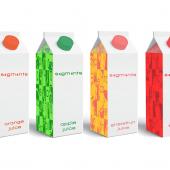Non-alcoholic drinks: sustainability starts with the packaging
100% recycled packaging and a growing use of rPET in bottles are among Assobibe’s main objectives, also contained in Unesda’s Manifesto 2024/2029.
Reduction of carbon emissions, saving of precious natural resources like water and sustainability of packaging. These are the three strategic pillars that Unesda (Union of European Soft Drinks Associations) has set out in its Manifesto 2024-2029 to safeguard the environment and protect consumers.
These goals are strongly supported by Assobibe (Italian non-alcoholic beverages producers), focused for some years on the reduction of environmental impact and the creation of social and economic value for the country and for the territories in which member companies operate. In a wider sense, the two Associations share the objective of contributing to the construction of a more sustainable Europe and zero emissions by 2050
Light and recyclable packaging
Unesda and Assobibe have set themselves rather ambitious goals: give precedence to 100% recyclable packaging starting from 2025; facilitate the achievement of the target of 90% collection of post-consumer packaging (PET, glass and aluminium) from 2030 and a growing commitment to the use of recycled plastic in PET bottles starting from 2025. Excellent results have been achieved in Italy through working, on the one hand, on a reduction in the weight of packaging, and on the other hand, on the use of recyclable materials. There has, in fact, been a growing use of recycled plastic: the use of bottles, labels and caps in recycled plastic, as well as the introduction of recycled PET (r-PET) with growing percentages of up to 100%. In addition, the reduction in virgin raw material – possible through the implementation of light weighting programmes – shows - 20% of PET used in bottles, - 30% of glass and - 40% of aluminium.
Production and logistics efficiency
For Assobibe, the ecological transition process must necessarily include improvements in the efficiency of production processes. A reduction in the use of resources, through recycling and reuse and the lowering of CO₂ emissions are two key points contained also in the Unesda Manifesto 2024-2029 which confirms the use of advanced and fit-for-purpose solutions by member companies. Another environmental sustainability objective relates to logistics. Today numerous enterprises are already relaying on electric mobility and rail transport, and the intention is to extend this approach to other members.
Protecting the final user
To complete the strategy, there are also initiatives that directly involve the final consumer, conceived with the aim of raising awareness of urgent social and environmental questions. These include campaigns against abandoning plastic in the environment and projects that aim at spreading positive recycling and reuse practices. In favour of consumers there is also the commitment of Assobibe member companies in health terms, having since 2018 achieved an increase of 41% in drinks with a reduced or zero calories content; the reduction in calories and sugar placed on the market have fallen by 22.5% and 41% respectively. Since 2006, moreover, producer companies have complied with a strict policy for the protection of minors. Actions include refraining from carrying out marketing activities in distribution channels both on and off-line, directed at children under 13 years of age, and from the direct sale of any soft drink in primary schools, also via automatic dispensing machines.



















